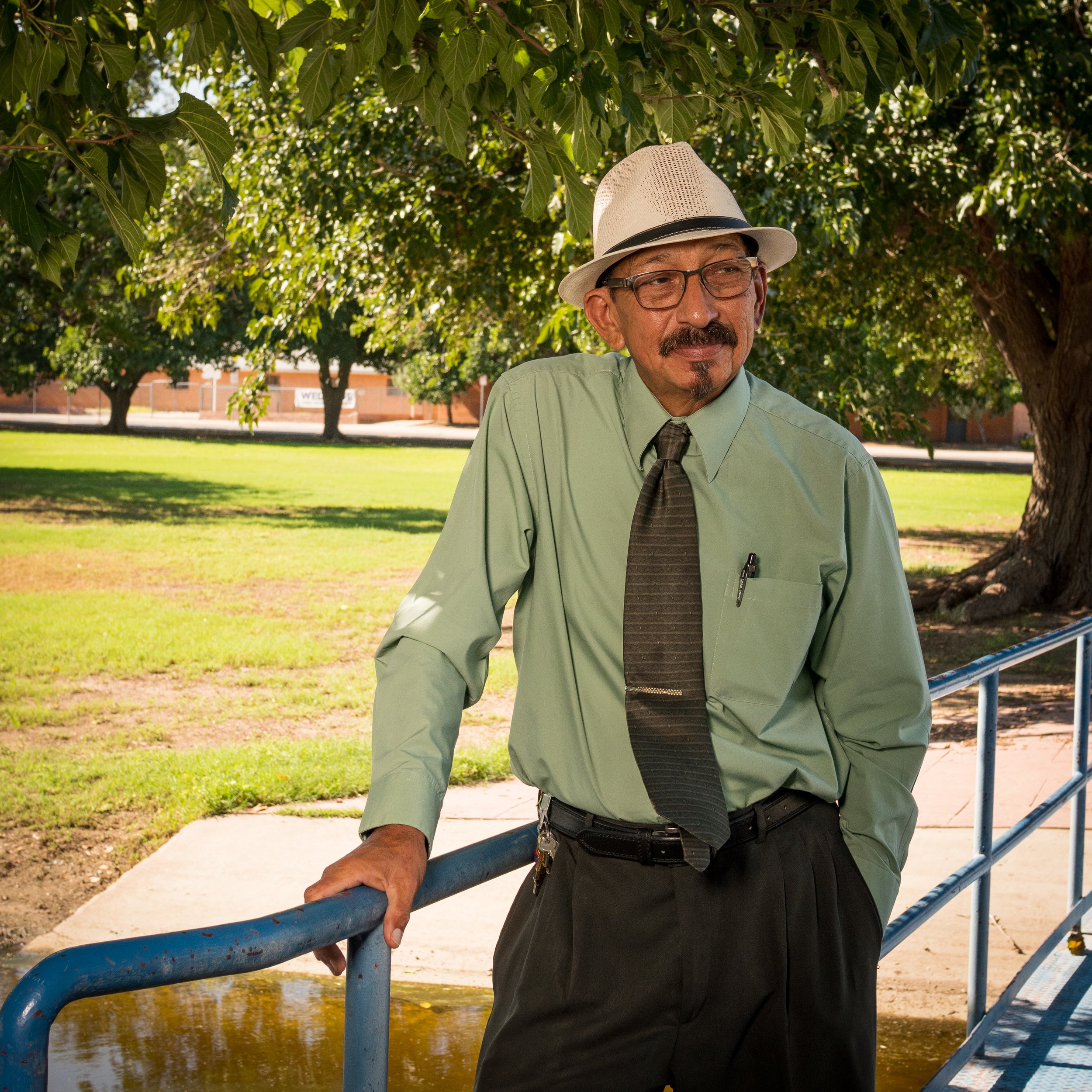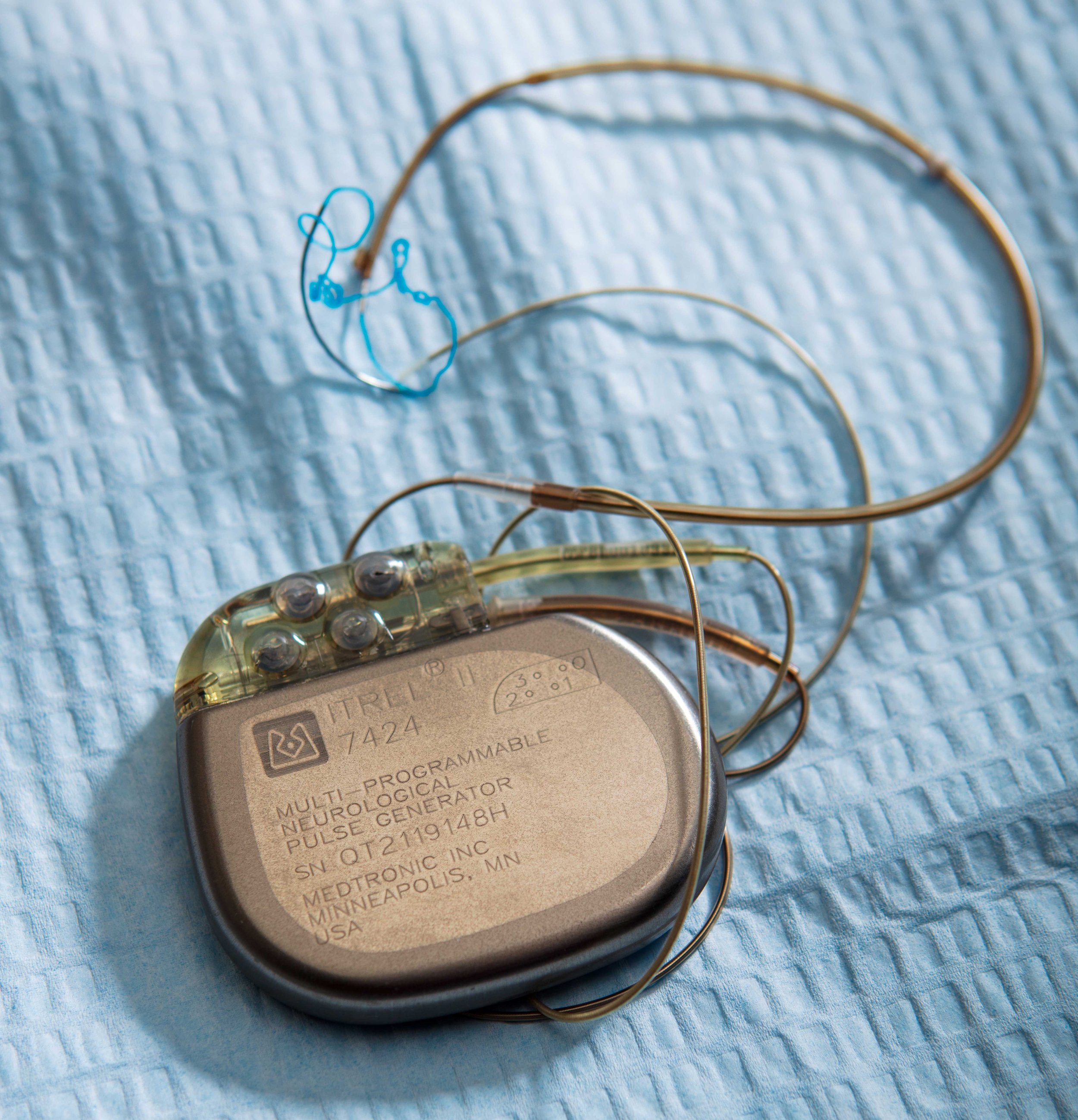
More Than Gut Instinct
A breakthrough GI surgical procedure leads to a better life
Richard McCallum, M.D., Brian R. Davis, M.D., FACS, FASGE, and Irene Sarosiek, M.D.
By Aaron Bracamontes
Photography by Christ Chavez
In 2018, Saul Coronado felt like he was at war with his stomach. Sometimes he would eat something and end up vomiting all day.
“I went to the emergency room four times in one year,” Coronado said. “Most other times I would just rough it out and stay home, miserable.”
Coronado is one of about 30,000 in the El Paso area affected by gastroparesis, commonly known as stomach paralysis, a condition that prevents the stomach from properly emptying.
It took a breakthrough surgery, part of a four-year trial by researchers at Texas Tech University Health Sciences Center El Paso and performed by Texas Tech Physicians of El Paso, to turn Coronado’s life around.
In the trial, combining stomach surgery with gastric electrical stimulation significantly improved the condition of patients with severe gastroparesis by reducing nausea and allowing the stomach to empty at a normal rate without surgery-related complications.
“We can save the amount of time patients spend in a hospital and ensure a better future for them,” said Irene Sarosiek, M.D., professor and director of neurostimulation research. “Symptoms were alleviated, their quality of life improved, health care costs were lowered and hope was restored to the patients. This kind of outcome is priceless.”
Saul Coronado
The first of the combined procedures is pyloroplasty – the surgical widening of the lower part of the stomach so its contents can empty into the small intestine. The second procedure involves placing next to the stomach a device called a gastric neurostimulator, which sends electrical pulses into the wall of the stomach. The process creates a signal to the brain that reduces the frequency of nausea and vomiting.
“I was shocked when they told me they would be putting a device inside me,” Coronado said. “I was skeptical, but I went for it because I wasn’t getting any better.”
The trial was led by Dr. Sarosiek and Richard McCallum, M.D., professor and director of the TTUHSC El Paso Center for Neurogastroenterology and GI Motility. The procedures were done by TTP El Paso surgeon Brian R. Davis, M.D., FACS, FASGE, who is also a Department of Surgery professor and residency program director at TTUHSC El Paso.
“Now I feel 90% better. Those doctors are a blessing; I was in bad shape and wasn’t enjoying being sick,” Coronado said. “Thank God for those doctors, for the treatment and for TTUHSC El Paso. I had nowhere else to go.”
Dr. McCallum said other institutes are doing similar practices. However, thanks to the TTUHSC El Paso study, he believes within five years, the combined procedure will become the “gold standard” for treating severe gastroparesis with surgery.

“Those doctors are a blessing; I was in bad shape and wasn’t enjoying being sick. Thank God for those doctors, for the treatment and for TTUHSC El Paso. I had nowhere else to go.”
— Saul Coronado


